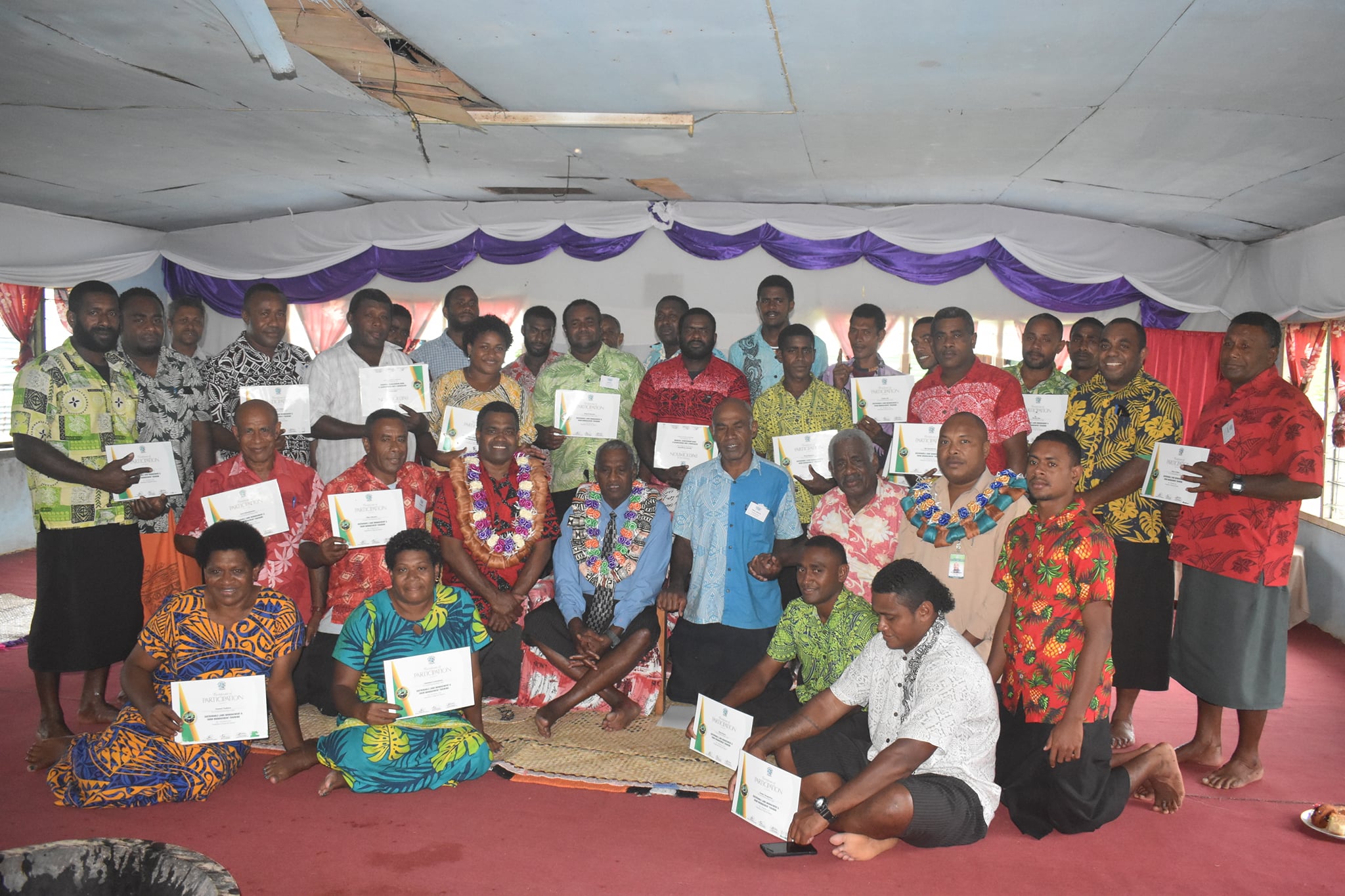Creating Wealth from the Land – Mataqali Natusasa Sets Development Plan
January 19, 2022

Picture: Participants of the training in Nawaqabena after graduation
Taking ownership of their natural resources and creating wealth from their land is at the top of the priority list for the Mataqali Natusasa.
Following a 3-day Farm Management training held at Nawaqabena for 29 members of the mataqali (landowning unit) Natusasa in Vunidawa village, Serea, Naitasiri their knowledge on implementing business models on their farms was reinvigorated as they now look to better days ahead and view farming as a business as a beacon of hope and a way forward.
Prior to the Farm Management training conducted by the Ministry of Agriculture, the Mataqali had already developed the ‘Natusasa Concept’ whereby members were allocated 5 acres each of their Mataqali land with the vision to undertake farming as a stepping stone towards further development for their Mataqali.
Mataqali Natusasa development committee member Elenoa Nimacere said the development plan was earmarked to empower the members living in the village to create wealth by fully utilizing their land which had been classified by the Ministry’s Land Use Section as suitable, arable land for crop farming.
“Our way forward is such that after each lot owner of the subdivided 5-acres per family receives their Land Use and Farm Management plan, the development committee will help them reach their goal in helping with planting material from within the Mataqali members and the other organizations including the Ministry of Agriculture,” she said.
“From next month all farmers have planned to be in their subdivided land and camp for a week and operate in clusters starting with land preparation.”
Ms Nimacere said the development committee members will monitor and evaluate the impact progress every month and meet with the farmers to resolve problems that stunts progress.
“We have asked the Ministry of Agriculture to start a task force with us so we can work together and help us to reach the goals of each individual, the Mataqali and the Yavusa.”
As for training participant Sekonaia Rawaimila, attending the training has been a blessing for him as he was accustomed only to the traditional farming methods with little to no regard for farming as a business.
“The training has truly broadened my knowledge on various farming practices and business models and I will surely implement it so it has a greater impact on my life and my family,” said Mr Rawaimila.
Meanwhile, Senior Agriculture Officer (Farm Management) Ms Naomi Naiqumu said the training was intended to empower the farmers to treat their farming not only as a business but as a rewarding form of employment too.
“A major component of the training is to teach farmers’ the basics of farm planning as most are subsistence farmers and to impart the importance of having goals and setting and implementing the plans to help achieve those goals,” she said.
A majority of the farmers are dalo farmers who contribute to the total 40% dalo production rate from the province of Naitasiri.
Additionally, the training was also to empower them to understand their land classes, soil type and the type of crops suitable to plant on their land which would encourage them to take ownership of their natural resources and its sustainable usage for the benefit of their future generations.
“Their main commodity is dalo, apart from dairy, and seeing as they are located in a rural area, the need to enlighten them to boost their farming to another level and to treat it as a business, with us also sharing the various development initiatives that are available to them is vital to see that they do indeed grow and develop,” said Ms Naiqumu.
-Ends-
